Larchwood Primary – On the up after a turbulent past

“Please don’t aspire to be on TOWIE”, says Larchwood Primary headteacher Ryan Duff

- by Elaine Bennett
- Digital content manager for Teachwire and former Teach Primary magazine editor

“I don’t know if you know Brentwood that well,” says Ryan Duff, headteacher of Larchwood Primary, “but you probably know TOWIE.”
He is, of course, referring to reality TV series The Only Way is Essex, which is filmed in the town.
“On the whole, Brentwood is quite affluent,” Ryan continues.
“There’s a disproportionate amount of Range Rovers on the high street, but here we’re in a different pocket. Our school is in the middle of a council estate. About a third of children are disadvantaged and I think that statistic goes against people’s perception of schools in Brentwood.”
During his first year at Larchwood, Ryan remembers hearing one child boasting to another about seeing one of the cast of TOWIE in Sainsbury’s. “I’ve got nothing against that particular woman, but please don’t aspire to be her,” Ryan says, and this sums up his attitude to the leadership of the school.
“Please raise that bar higher and aspire to greater things,” he continues. It wasn’t just the aspirations of the children that needed raising, either, as Ryan explains. “A lot of the staff back then had the mentality of, ‘Well, what do you expect from these kids?’ I said, ‘Are you saying they can’t achieve because they’re from a council estate?’.”
School profile

Name: Larchwood Primary
Headteacher: Ryan Duff
Deputy: Steve Bowsher
Location: Brentwood, Essex
Ofsted rating: Outstanding
Turbulent times
Ryan’s drive to raise standards began when he was seconded to Larchwood in September 2012. At that time the school was, in Ryan’s words, ‘rudderless’.
“There was no real sense of direction or vision,” he says. “The knock-on effect was that we weren’t necessarily doing anything well. Teaching and learning wasn’t where it needed to be. Behaviour certainly wasn’t.”
The school was emerging from a period of turbulence, after having four different headteachers over a three year period. Some children were going into Y6 at the same level they left Y2 at. “Some had even regressed and gone backwards,” says Ryan. “It was just awful.”
Restaffing was high on Ryan’s agenda.
“We gave teachers the support they needed and some improved, but some didn’t and then left,” he explains. But recruiting to fill these positions was easier said than done.
“We had behaviour that wasn’t where it needed to be, aggressive parents and a massive gulf in our progress and attainment. Ofsted was also due soon and we were fully expecting ‘inadequate’. Funnily enough, we didn’t have teachers lining up at the door. We’d put an advert out and get no interest whatsoever.”
Through various means, which included digging deep into his contact book, Ryan eventually managed to recruit a new team to lead the school forward.
Rain or shine
Ryan, alongside deputy head Steve Bowsher, has made it his mission to improve community relationships. Every morning and afternoon you will find both Ryan and Steve at the school gate, chatting to families and welcoming pupils.
“We’re out there rain or shine,” explains Ryan. Steve adds, “Anything that parents want to talk about gets addressed at that point. It prevents an awful lot of worry for them and also a lot of extra stress for staff. Ultimately, us being out there every day saves time.”
Relationships with the local community haven’t always been so rosy, as Ryan explains.
“Being blunt, I had to ban a couple of parents off site straight away in the early days because they didn’t meet our expectations – it was for things like swearing while on the playground and getting aggressive with staff.”
If a ban is implemented, Ryan sends a letter to the person in question.
“In it, I would normally say say that if they apologise, the ban is lifted,” Ryan explains.
“Parents can sometimes still bring external falling-outs into the playground, but nowadays by the time I speak to them they’re already apologising because they know the repercussions. It’s all about setting out those expectations that we would call normal. Parents just need reminders every now and then.”
Making things affordable for parents is another key concern of Ryan’s.
“Our breakfast club is £2.50 which is really good value compared to the Essex average”, he explains. “Our discos are £3 all in and football club is subsidised so only costs £10 for the whole term. One of the reasons we extended our autumn half term this year is so parents have the opportunity to enjoy a cheaper holiday during that second week.”
Aside from football, the school runs over 20 extracurricular clubs, all free to attend. These cover a vast range of interests, from cartoon drawing and card trading to Portuguese and poetry, all run by school staff.
“You can’t force staff to run clubs. I never say ‘I’d like you to run that club or this club’,” explains Ryan.
“Staff run clubs about the things they are passionate about. I run the table football club – I’m not sure what that says about my misspent childhood but the kids absolutely love it. In the nicest possible way, our parents probably don’t know how good our offering is, because they don’t know any different.
“Generally, in primary schools, most clubs are a paid for provision delivered by external providers. I understand why this is the case, but I think that all children should have the opportunity to attend clubs. Despite my parents not knowing how to play chess, I joined the chess club at primary school. I was able to learn because of the opportunity given to me. It’s the wider offer, outside of the curriculum, that also plays a vital role.”
One of Larchwood’s mission statements is about giving the children opportunities and experiences that they will remember for life. “That’s key,” says Ryan. “Are children going to remember that they left at expected standard in English or greater depth in GPS? No. Are they going to remember this experience or that opportunity? Yes. I want our children to leave primary with memories that they will look back on with fondness.”
Happy faces
Since his arrival five years ago, Ryan has been relentless about driving up expectations and aspirations, and the school’s results have followed suit.
It was awarded ‘outstanding’ by Ofsted in March and is now in the top 3% of schools in England in terms of the progress its pupils make in reading, writing and mathematics between KS1 and the end of KS2.
Getting to this point has been exhausting, admits Ryan. “As an SLT we’re very aware of the wellbeing of our staff,” he says. “We’ve amended our marking policy recently and we give both PPA time and data time. In schools I’ve worked at in the past, PPA was cancelled quite regularly. Here, it’s never cancelled.”
Larchwood’s governors assess staff wellbeing at the end of every year by asking them to fill out anonymous surveys. “They rate their happiness and this year it was mostly nines and tens,” explains Ryan.
“You’re never going to get workload spot on, but that’s still really positive. It’s all very well me saying that my staff are happy and that I’m trying to reduce workload, but when you’ve got the teachers saying that themselves, that’s great.”
As well as being on the SLT, deputy Steve is also a classroom teacher, meaning he can see things from both points of view.
“While we already do a lot of the things recommended in the government’s workload challenge, that doesn’t stop us tweaking things. The change we made to our homework policy has helped to reduce workload and our school reports are now just one side long.”
Just before the start of the autumn term, Ofsted director Sean Harford tweeted, asking senior leaders what they intended to do to reduce staff workload. “Comments like that don’t help,” says Ryan. “I believe the question should have been, ‘What’s the DfE doing to reduce workload?’”
More than outstanding
One thing that is striking about the exterior of Larchwood, newly awarded ‘outstanding’ by Ofsted, is that there are no banners boasting of the school’s achievements.
“That’s not my style,” explains Ryan. “It’s not that we’re not proud of it, we absolutely are, but we are more than just outstanding.”
The Ofsted process did not run entirely smoothly for the school. Newly designated as an academy, Ryan knew that he had five terms to ready Larchwood for inspection. By the fourth term, the school self-evaluated as outstanding.
It was then that Ofsted changed its policy, announcing that it would now inspect new academies within three years.
“I thought, ‘Oh no, we’re ready now!’,” says Ryan. When the inspectors finally arrived, the school was graded ‘outstanding’, but Ofsted’s quality assurance process led to a two-month delay in Ryan being able to announce the result to his team.
“That was really, really difficult because I’m very transparent with my staff,” says Ryan.
“Ofsted informed me of the wording that I could use. The lead inspector said I could tell staff that I was ‘pleased’ with the outcome. I asked, ‘Can I say I’m very pleased?’ and she said no.”
When Ryan walked into the staffroom at the end of the final gruelling day of the inspection, he was met with a sea of faces – staff who had stayed late especially.
“I said, ‘I’m pleased, and that’s all I’m allowed to tell you.’ You could see their frustration. Because of the delay, parents started asking if there was a problem and we had to quash rumours.”
Surprisingly, Ryan says he never mentions the school’s ‘outstanding’ rating when showing prospective parents around.
“When you’re at home doing your research about a school, there are not many things that you can look at apart from its Ofsted report and data, so I understand why parents hang up their coat on that peg, but do they put too much emphasis on it? Maybe. My attitude is that any parent who wants to send their child here will do their research and will know we’re outstanding, but it’s not just about that.”
In fact, Ryan believes Ofsted needs to reform.
“That ‘outstanding’ badge can be somewhat divisive. If Ofsted said tomorrow that it was getting rid of grades and replaced it with, ‘You’re either good enough or you’re not’, I wouldn’t mind that.
“The reason why it meant so much for us here, locally, was because Larchwood has historically been a disregarded school, a ‘council estate school’. When our children went on to secondary, other students used to have low expectations of them and class them as ‘just Larchwood kids’. Now the children can say, ‘We come from Larchwood and we do alright, thanks.’ That’s more powerful than any banner.”
“After we received our Ofsted report, a parent asked me if I was leaving,” says Ryan.
“I said no, and asked him why he asked. He said, ‘It’s just that you said that you wouldn’t even contemplate leaving until the school is outstanding, and now it is’.” On the contrary, Ryan confirms that he is in it for the long haul. “Whether you like me or not, I’m staying,” he smiles.
Over the next few months the staff is going to be taking a closer look at the school’s wider provision.
“We know what we do well, but we are refining the provision outside of the curriculum,” explains Ryan.
“This is our normal now and it’s about what takes us above and beyond. Yes, children’s progress and attainment have to be paramount, but what are the additional things you’ve done today? Are you learning to sing or play the piano? What are you growing in our eco area? We need to stay at this level, and that’s not easy, but it’s about looking at our provision in finer detail and seeing what would make it even better. Our ‘normal’ is not the normal of most schools.”
Time-saving marking
Larchwood changed its English marking policy last year, partly to reduce staff workload. English lead Keely Adams explains: “Before, our marking was quite heavy on teacher comments. Sometimes, children would do a piece of writing and the teacher’s comments would be the same length, if not longer.”
The school is now trialling an option that encourages the children to self-assess their writing against a success criteria. Keely continues,
“Then all we need to do as teachers, either with the child or after, is go through and agree or disagree with what they’ve said and set them a next step. It’s cut down our marking an awful lot and made it more purposeful.”
Y5 teacher Adam Sumner adds, “It’s a good way to mark because you know the children understand what they’re doing, because they’re able to pick it out from the success criteria themselves. It’s a definite time-saver.”
The school has also modified its maths marking procedures, as Adam explains: “We’re using a lot more marking codes for common errors that you’re always writing about, such as using one number per square.”
Codes are also used when verbal feedback has been given, says Y2 teacher Dawn Jaycock. “In other schools I’ve worked at you have to write what your verbal feedback was, but here, we just write ‘vf’. You don’t need to write what you actually said, because in theory you should see the impact of that feedback in subsequent work.”
Pupil voice
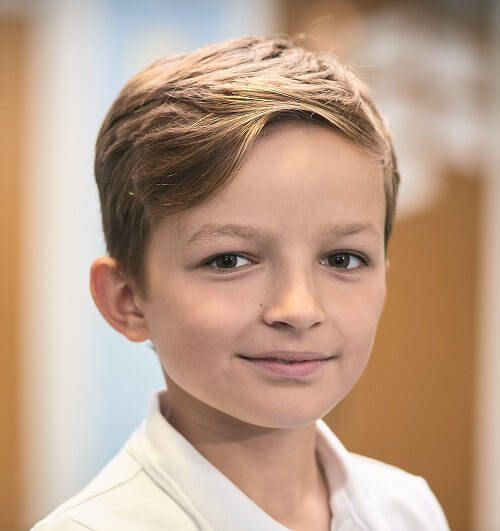
Tyler
My favourite thing about this school is all the clubs we can do – there’s tons of them, at least 20. I do netball after school, which also helps with my football skills, and card trading at lunch.
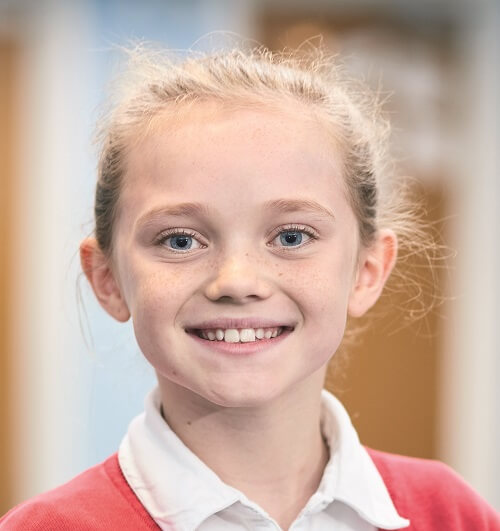
Lauren
Every Friday Mr Duff does a celebration assembly. He’s got a massive trophy called Mr Duff’s Superstar Award. He chooses one person and they get to take the trophy home for a week then bring it back.
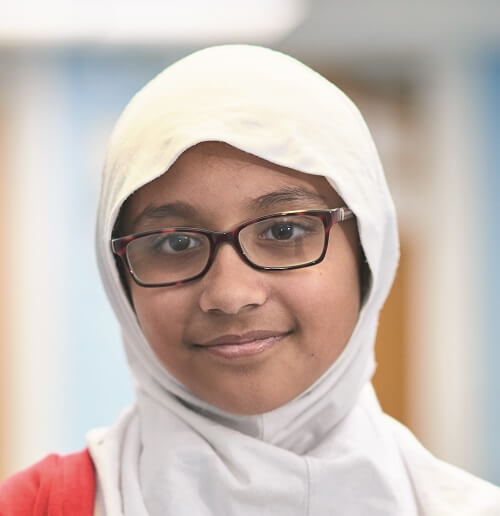
Roza
The thing I love about this school is how helpful the teachers are if you have a problem. If your family has suffered through a lot of hard things, like mine, they will always help you.
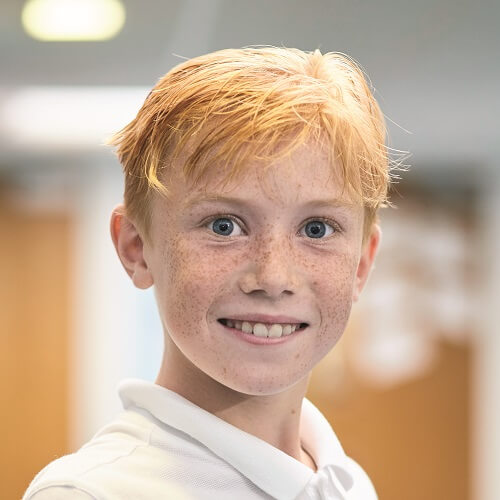
Leland
There is a reading chart in every classroom which we mark off every day. At the end of the week the teachers write down the class percentage. If your class wins you get five minutes extra play.
Meet the staff
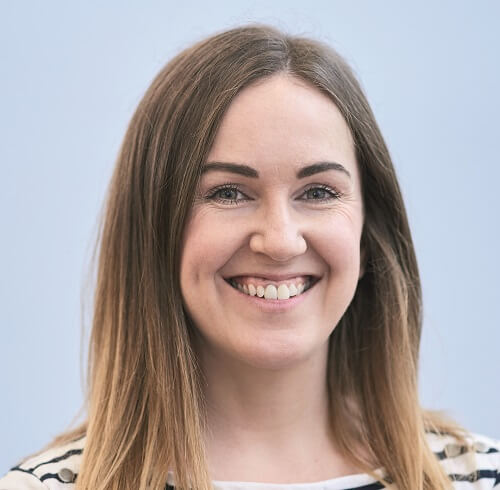
Keely Adams, Y6 teacher & English lead
I’ve worked at ‘requires improvement’ schools where policies change every two minutes – the SLT is scared to run an initiative to its conclusion because they’re trying to get rapid progress. If something hasn’t worked instantly, you have to try something else. Here, Ryan gives us the freedom to try things and he’s willing to let them run, so you actually see their impact.
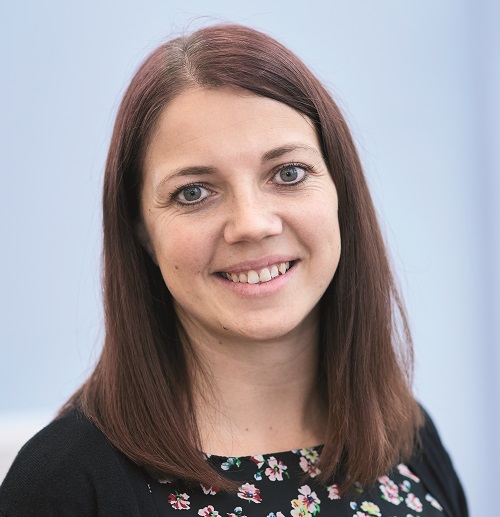
Emma Smith, Y2 teacher & SENCo
We work well as a team because we’ve all got the same goals. Although I had been teaching for three years, when I joined this school it was tough. However, the leadership team drove everyone in the right direction. It was hard but worth it. When we found out our Ofsted result we went out and celebrated. It was a good night.

Adam Sumner, Y5 teacher & science lead
Maths mastery was a very difficult concept to introduce at the top end of the school. The children were at very different levels because they’d been differentiated so heavily in the past. Now, as year groups that have had two years of mastery are coming through it’s so much easier. I love teaching mastery maths. I think it’s the right way to approach it.
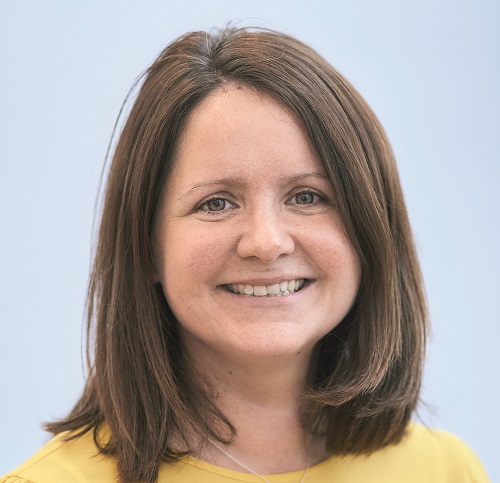
Dawn Jaycock, Y2 teacher & SMSC lead
Because Steve and Ryan are present at the school gates every morning, if parents have any burning issues they can have that conversation then. That’s really important for families – to feel they can speak to somebody if they want to. Parents also write little notes in the children’s reading diaries but generally they are positive things about how much their child enjoyed something.
Read about Hogarth Primary, another school transformed by Ryan Duff and his team.










